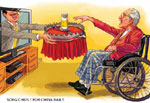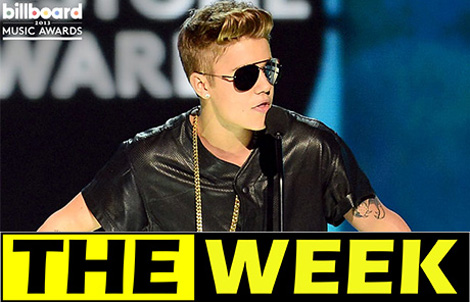Li seeks to cool trade disputes
Updated: 2013-05-31 07:14
By Fraser Cameron (China Daily)
|
|||||||||||
Premier Li Keqiang visited just one EU member state on his recent trip to Europe and to no one's surprise this was the largest and most influential member state - Germany. As a result of the financial crisis, Germany has become even more important within the EU, setting the terms of the bail outs for countries such as Greece, Cyprus and Ireland.
Being responsible for over a third of all EU exports to China, Germany is also the main trading partner of China. It has proved a bonus for German companies to have such a large overseas market when other European economies have plunged into recession. The EU is China's most important trading partner, while for the EU, China is second only to the United States. Chinese exports to the 27-member bloc totalled 290 billion euros ($375 billion) last year, with 144 billion euros going the other way.
Inevitably Berlin's voice counts in trade disputes between the EU and China such as the current stand-off regarding solar panels. The EU accuses China of pricing its solar panels and mobile telecom devices too cheaply and "dumping" them in Europe to corner the market. It plans to impose duties on Chinese panel makers. Speaking at a joint press conference with Premier Li, German Chancellor Angela Merkel said Germany would do everything it could to prevent the trade dispute from escalating to the point where the European Commission imposed import duties of just under 50 percent on Chinese panel makers. "Germany will do what it can so that there are no permanent import duties and we'll try to clear things up as quickly as possible," Merkel told reporters after a meeting with Li in Berlin. "We don't believe that this will help us, so we want to use the next six months intensively."
Li agreed with Merkel stating that a trade dispute between the EU and China would harm both sides especially as the global economic recovery was still in fragile shape. He said relations between China and Germany could lead to the emergence of a "dream team" if both came together in an optimal way. He added that China was ready to open up new sectors of its economy to German investors, mentioning manufacturing, logistics, education, and healthcare as priority areas.
Just after Li left Germany, Chinese Vice-Minister of Commerce Zhong Shan was holding informal talks with EU Trade Commissioner Karel De Gucht, to discuss a possible negotiated solution to the dispute. A number of other EU member states have sided with Germany, concerned at the possible implications of a trade war including the impact it could have on European companies operating in China. But De Gucht made it clear that it was the European Commission alone which has the role of deciding on tariffs and would not be subject to pressure from China or member states. Besides solar panels and components, the EU has said it also plans to investigate Chinese manufacturers of telecoms equipment such as giants Huawei and ZTE.
Before the German leg of his trip, Li signed a preliminary agreement with Switzerland for a free trade agreement. After Iceland, Switzerland would become the second European nation to sign a free-trade deal with China. Li said that it would be the first such deal between China and one of the 20 leading global economies. Switzerland's economy minister Johann Schneider-Ammann stated that he hoped to sign the FTA during his visit to Beijing in mid-July. Switzerland will offer zero tariffs for almost all China's exports, while China will offer zero tariffs for around 85 percent of Swiss exports. Bilateral trade between the two is worth $26 billion and should increase significantly after signing of the FTA. The main products traded are watches, medicines, textiles, and dairy products. This FTA could pave the way for a further such agreement with Norway, the largest Western European economy, apart from Switzerland, still outside the EU. But political relations between China and Norway remain strained and this could affect deeper trade ties.
Li's European visit demonstrated the importance of a pragmatic way forward for China and the EU as both powers seek to recover their previous growth levels. Each side has many internal problems to resolve but a thriving bilateral relationship would bring benefits to both China and the EU. It is to be hoped that the momentum will be continued when leaders meet for their annual summit in China later this year.
The author is director of the EU-Asia Centre in Brussels.
Related Stories
Li promises to speed up service growth 2013-05-30 08:01
Li's visit features trust, sincerity, benefit 2013-05-29 19:28
Li touts Sino-German ties 2013-05-28 08:08
Li paves way for German investors 2013-05-28 08:03
Li slams EU's trade policies against China 2013-05-24 19:34
Today's Top News
China corrects Japan on treaty's Diaoyu implications
Manila condemned over grounded warship
Russian envoy vows to boost ties
EU to step up investment in China
Higher education goes global
Plastic ban fails with ultra-thin bags
Flow test for water project gets underway
Campaign to help moms find breastfeeding rooms
Hot Topics
Lunar probe , China growth forecasts, Emission rules get tougher, China seen through 'colored lens', International board,
Editor's Picks

|

|

|

|

|

|





